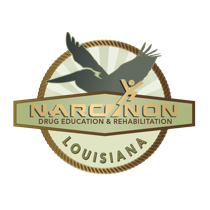The Endless cycle of Trying to Quit

“I’m done. I just can’t do it anymore.” While these might sound like the words of someone who is finally ready for treatment, they are quite the opposite. I am giving up on treatment, after five failed attempts. These are my words.
I wanted to know what was wrong with me. Why I couldn’t get better. Was I one of the people whom treatment doesn’t work for? One of the “unfortunates” who are “not at fault; they seem to have been born that way”? I remembered that paragraph from the Big Book of Alcoholics Anonymous. I remembered most of them.
After all, I’d read it so many times. I’d been to the meetings. Inpatient or outpatient, 12 step based meetings that I went to because of an intervention; or an order from drug court; or on my own volition. Ones as short as twenty eight days or as long as six months. What was wrong with me?
I certainly had issues. I was “powerless” over drugs and alcohol. Not because I actually could not control myself, but because I believed I couldn’t. So I didn’t. After all, the first of the twelve steps is to admit we are powerless. This was a nice, zero-responsibility idea I could agree with. I was a victim. But something didn’t feel right about all of this.
I hated the idea I would have to attend meetings for the rest of my life or else I wouldn’t make it. I hated when the guy at the meetings, who had been sober for thirty five years told me that today was just as hard as his first day. I had trouble with the concept of believing in God, let alone asking him to remove my character defects. But out of all of the sayings I found so cliché, there was one that I did like: “Relapse is a part of recovery.” That meant failure was inevitable. And it was an out I took over and over again.
What I didn’t know, was there were others ways. There are alternative programs, many with much higher success rates and empowering approaches. Where were they? Why do the court systems not order people to them regularly, as they do with AA meetings and programs? Why have the Twelve Steps become the Industry standard, despite the glaring evidence they should not be?
To answer all of these questions would take a dissertation rather than an informative blog. Feel free to do your own research on this, as it’s quite interesting. There are various political, financial, and even religious reasons why this has become the case. And with over 2 million members in AA, it is by far the most attended methodology. It is unfortunate that only five to eight percent of these people will achieve recovery.
Being addicted to heroin, benzodiazepine tranquilizers and alcohol for 12 years can look pretty hopeless. You may even be, or know someone, who wants to give up. I’m not here to bash AA or NA. I have personally witnessed people achieve sobriety through it. It does work for some people. Just not myself, and many others.
There are other options. Why continue to do the same thing if it’s not working? I had to realize this, and start investigating. I decided to give it one last shot. And with the help of my family, I did. I decided if this last effort didn’t work, I was going to do drugs until I died. I was told to find someplace good. My search began.
I found there are programs out there that are holistic and secular. That do not give you drugs to replace the drugs you were on. Places that don’t give you a bewildering diagnosis of being doomed for life with a disease that’s incurable. You can get the help you need and take back control of your life. You can leave treatment rehabilitated, without a prescription for antidepressants and daily meetings. You can resume life because you are no longer an addict. You are powerful.
I’m Joe, and I’m not an addict. Anymore. I have been clean for over five years.
If you or a loved one is struggling to get sober and stay sober please contact us today to learn more and receive a free assessment.
